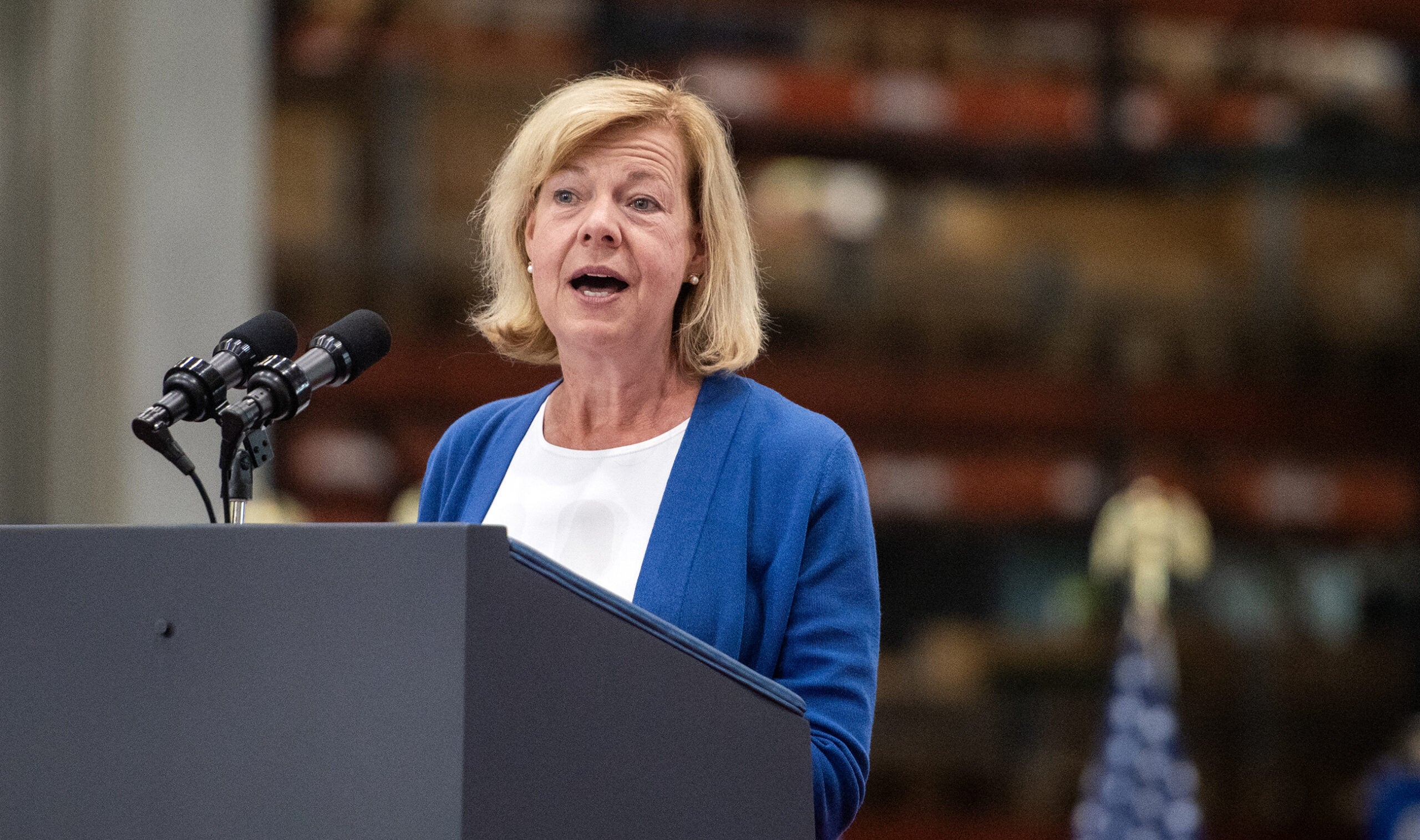According to U.S. Sen. Tammy Baldwin, Wisconsin farmers are terrified for the global trade war as the state’s top agricultural export markets are Canada, Mexico and China.
In a joint statement with 18 other Democratic colleagues, and in an interview on WPR’s “Wisconsin Today,” Baldwin voiced concern over President Donald Trump’s on-again off-again tariffs.
“Farmers not only have billions of dollars in commodities from last year waiting to be sold, but also have started spring planting and rely on stable markets for their planning,” she wrote.
News with a little more humanity
WPR’s “Wisconsin Today” newsletter keeps you connected to the state you love without feeling overwhelmed. No paywall. No agenda. No corporate filter.
Across the country, farmers are bracing for increased input costs on supplies like fertilizer and equipment but also the loss of potential export markets.
In 2024, Wisconsin exported $3.97 billion in agricultural products. Of that nearly $4 billion, Wisconsin farmers exported $333 million worth of agriculture products to China, which recently announced retaliatory tariffs on American goods from 84 percent to 125 percent.
“I’ve been hearing from some farmers that chaos is a form of its own tariff,” Baldwin said.
However, she says she supports tariffs in some circumstances. On “Wisconsin Today,” she discussed what she believes is an appropriate use of tariffs and the role of Congress in trade policy.
The following interview has been edited for clarity and brevity.
Rob Ferrett: You’re not universally opposed to tariffs. Targeted tariffs, you say, are fair game in particular situations. When do you see tariffs as being the right answer?
Tammy Baldwin: When we have examined and investigated and found specific instances of cheating against the international trade rules, and oftentimes this is the PRC [People’s Republic of China] subsidizing their industry for the sole purpose of trying to do injury to U.S. business.
I’ll give you an example, a recent one that we’re still looking at remedies for.
The U.S. used to dominate in commercial shipbuilding, but last year the U.S. produced five commercial ship vessels and China produced 1,700.
Obviously, there’s been an enormous change and an investigation at the Commerce Department revealed that the [PRC] was actually skirting the trade rules, cheating, subsidizing, sometimes China uses forced labor, all sorts of things that can make them able to produce at an artificially low rate and drive other countries out of business.
There, it’s very appropriate to take actions to try to give us a shot at reaffirming our role in commercial shipbuilding.
But these across the board tariffs with our trading partners, with our allies, when there’s no cheating that’s been alleged — just trading deficits because we buy more than we sell to them — that’s a different matter, and it’s harming not just farmers but manufacturers, small businesses and families who have to buy groceries each week.
RF: Last week, we spoke to Republican Sen. Ron Johnson about how tariffs are impacting Wisconsin businesses. We asked if the executive branch should have the sole authority to impose tariffs or if Congress should reclaim that authority. Here’s what he said.
Sen. Ron Johnson: If I had more confidence in Congress, I might be a little bit more aggressive in trying to claw that authority back. But when we can’t pass budgets, when we don’t pass appropriation bills, when we don’t take our power of the purse seriously, it’s kind of hard to want to claw that back.
RF: Sen. Baldwin, should Congress, as some Republicans and colleagues have said, try to take back that power over tariffs?
TB: First of all, the top line here is that President Trump has decided to paint the economy unilaterally on his own with these across-the-board tariffs. He is the one who should be answering to the American people, first and foremost.
That said, of course, Congress has a role to be a check and a balance to this president. And you saw a few weeks back the Senate voting on a resolution to take away the emergency declaration that President Trump made to justify his across-the-board tariffs against Canada.
We were successful in that we had a handful of Republicans join all Democrats in voting for that resolution. Now, the House hasn’t seen fit to take it up, but they could, so we could fight back more effectively.
But I would say especially to Sen. Johnson’s comments, that I’m seeing House and Senate Republicans willingly give up their powers of the purse strings to this president, and we need to be an effective check and balance.
There are three branches of government and the Congress needs to assert itself in this arena and when the President overreaches in legal or constitutional terms the courts need to assert their role as a check and balance.






